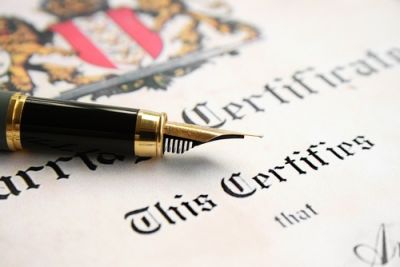 With all the details you wrangle while planning your wedding, your marriage license is a critical element you can’t afford to overlook. After all, it’s the legal documentation proving that you’re married and entitling you to benefits as a wedded couple. In your rush to finalize the important arrangements, setting aside time to apply for and obtain your license is vital. Fortunately, following some useful tips should make this task much easier.
With all the details you wrangle while planning your wedding, your marriage license is a critical element you can’t afford to overlook. After all, it’s the legal documentation proving that you’re married and entitling you to benefits as a wedded couple. In your rush to finalize the important arrangements, setting aside time to apply for and obtain your license is vital. Fortunately, following some useful tips should make this task much easier.
Know Where You Need To Go
The Knot explains that license applications are usually handled by the government offices of first-order administrative subdivisions. Most states handle this process at the county level. However, there are some exceptions of note. Most Louisiana residents must visit their parish’s Clerk of Courts. Alaskans are required to submit their applications to their local vital records or state court offices. Independent cities and consolidated city-county areas grant licenses either through local circuit courts, city-county clerks, or dedicated marriage license bureaus.
Understand Your Jurisdiction’s Requirements
You’ll likely need to appear with your mate in person to get a marriage license, but some areas permit you to complete your application online. Either way, they’ll usually mandate that you follow some key guidelines. First, you will both need to be at least 18 years old and unmarried. If you’re still minors, you’ll need to follow local age guidelines and obtain parental permission. While you also must a abide by any residency rules, you probably won’t have to take a blood test. Current exceptions include Montana, District of Columbia, and New York, but you can check Nolo's website for these requirements.
One sticky detail easily overlooked during the process is the mandatory waiting period. Many jurisdictions don’t have one, but those that do require couples to wait between one and five days to receive their licenses. To avoid any snags in your planning, check ahead and be sure to apply in plenty of time before the big day. Don’t overshoot the mark, however, because your license may only be valid for a certain period of time after its issue date.
Verify Hours of Operation
Your county’s clerk of courts is open, but does that mean you can walk in and apply for a license anytime during their office hours? That depends. The Knot points out that some government agencies restrict marriage license applications to certain hours or may request that you appear no later than 30 minutes to an hour before closing. Double-check your issuing agency’s website or call to confirm when you can apply.
Bring All Necessary Documentation
When you’re ready to apply for your license, you’ll need to be prepared. A June 2018 Brides article mentions several commonly requested pieces of documentation you must have with you:
- Valid government-issued identification, such as a driver’s license or passport
- Proof that you’re not legally married
- Information about your parents, including their full names, birthplaces, and dates of death if applicable
- Your application fees
Remember that some locales may ask you to present your birth certificate along with your government ID. If you previously tied the knot, check with your issuing office about documentation to prove that you’re no longer married. In most cases, that proof is either a death certificate or a court decree showing a divorce or dissolution.
Do Your Homework Before You Go
It takes more to get your marriage license than simply showing up to the right place. You must meet certain requirements to qualify, and these can differ vary between jurisdictions. The bottom line? Keep your process trouble-free by understanding your local government’s rules, having access to important documentation, and following application instructions. You’ll have your license in hand and ready to go when the big day arrives.
Add Your Comment